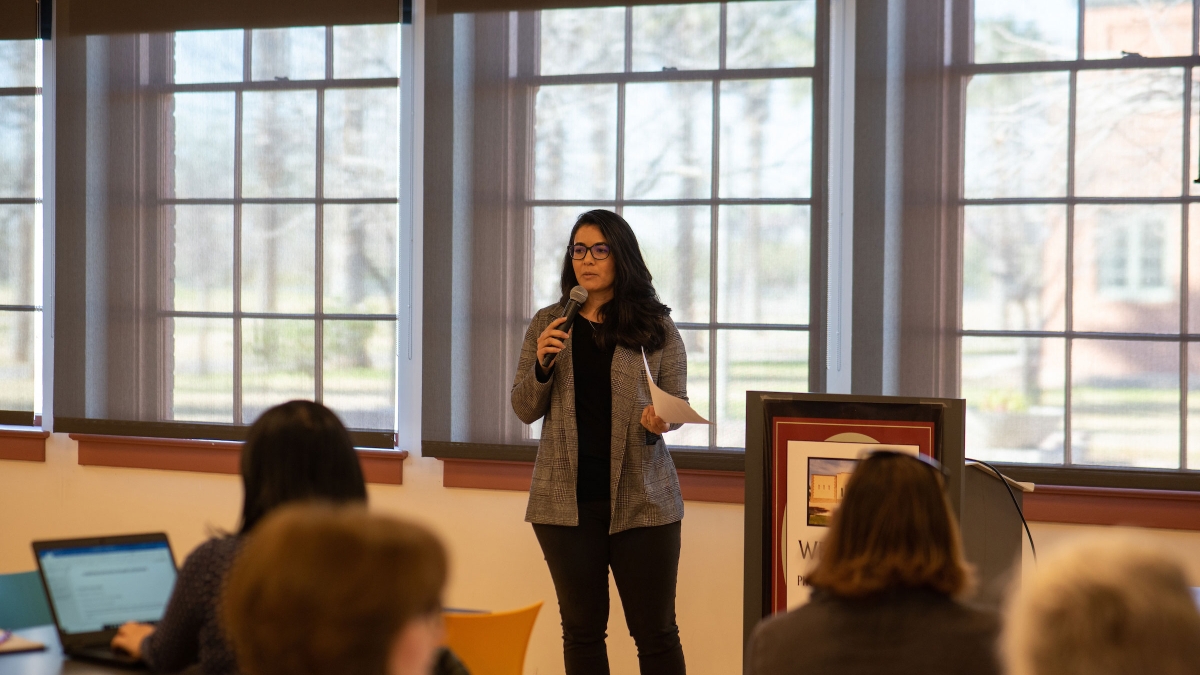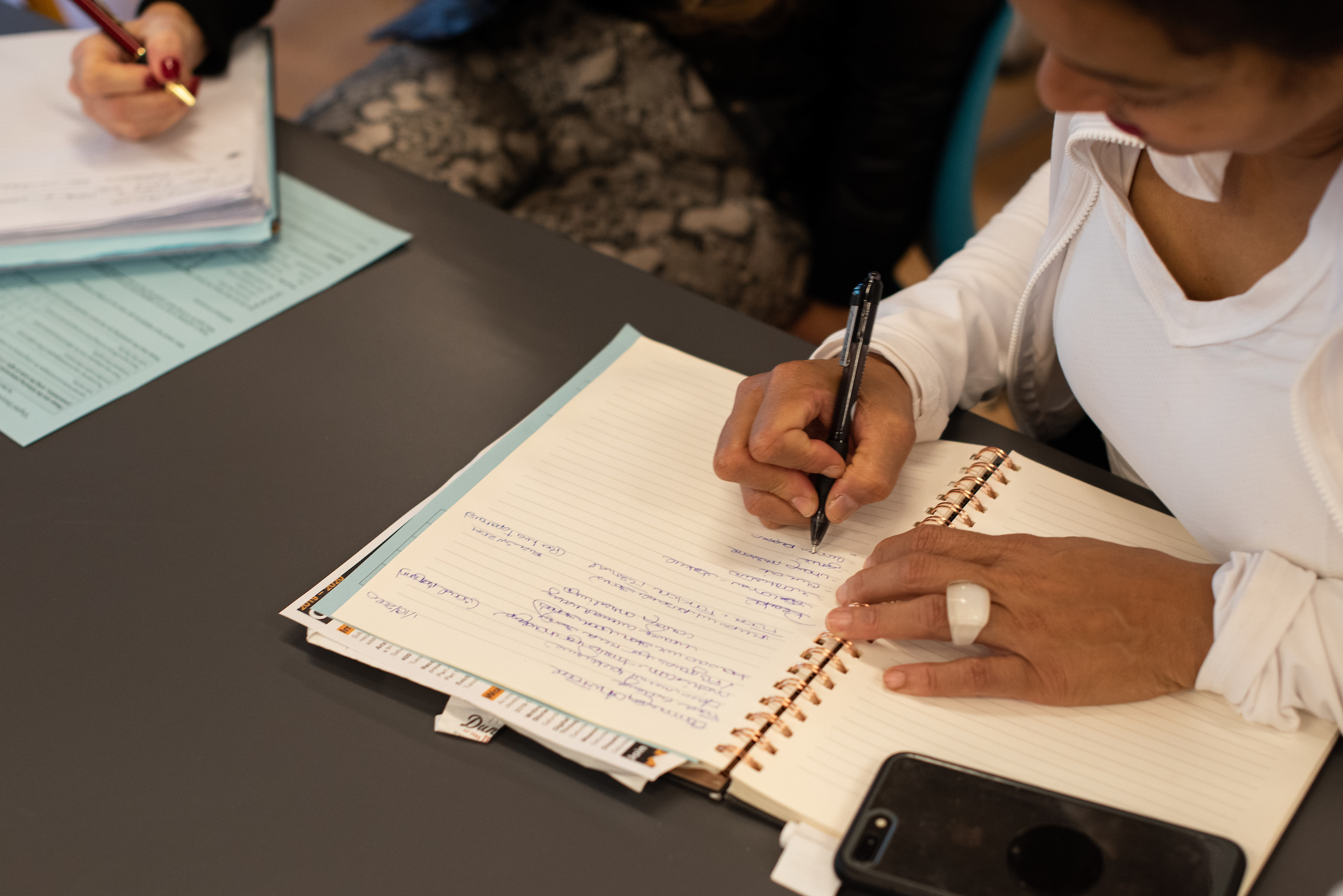Telling digital food stories

Tamale season is that time just before Christmas when friends and relatives come together to partake in the time-honored tradition of soaking corn husks, cooking fillings, spreading masa and rolling it all up into hundreds of delicious little meat pockets.
Vanessa Fonseca-Chávez, assistant professor at ASU’s College of Integrative Sciences and Arts, kicked off last week's "Digital Storytelling: Imagining Community Through Food Stories" event with her family’s own tamale-making story.
One year, horrified at her mother’s suggestion that they buy tamales instead of making them, Fonseca-Chávez determined to lead the endeavor herself. Because aside from the mouthwatering food that results, making tamales is really about connecting as a family.
“The point is it takes our entire family for this to happen,” she said. “So regardless of how much work it is, it’s worth it.”
Food can bring not just families but communities together through shared values and experiences. And in the digital age, it’s easier than ever before to connect through food.
That was the goal of Saturday’s event, in which Fonseca-Chávez led participants through a workshop on how to write about, share and add to their food stories through digital engagement on websites like Facebook, Instagram and Bon Appetit.
College of Integrative Sciences and Arts Associate Professor of communication and culture Manuel Aviles-Santiago, who helped organize the event, referred to the increasing phenomenon of the “digital foodprint” as inspiration for the day’s workshop.
“By ‘digital foodprint’ I refer to the digital data we produce — intentionally and unintentionally — about food on social media (i.e. restaurant reviews, status updates, sharing images, recipes),” he said. “Our goal is to help understand the impact of these digital food stories in the configuration of community and sense of belonging.”
Participants of Saturday's Words on Wheels "Digital Storytelling" event wrote down family recipes then shared them with the group to begin the process of creating a story they can share digitally with their communities. Photo by Meg Potter/ASU Now
The workshop was hosted as part of the Center for Race and Democracy's Words on Wheels initiative, a mobile writing center geared toward helping people develop personal, professional and civic writing and literacy skills, with a special focus on serving members of the greater Phoenix community that have historically been disenfranchised due to race, culture, poverty, individual trauma and other social injustices.
Attendees at Saturday’s event ranged from high schoolers to retirees. After Fonseca-Chávez told her family tamale story, they were encouraged to tell their own food stories in small groups, then share with the whole crowd.
College of Health Solutions staffer Shanan Bouchard attended the workshop hoping to learn more about how to tell family stories through food, since it’s a universal experience. She relayed how her grandparents’ green tomato relish recipe originated with the need to use whatever resources were available, even if they were not yet ripe.
“My grandparents were very poor, so if tomatoes were green in the garden and they didn’t have anything else to cook with, you learned to cook with those,” she said. “They didn’t let anything go to waste.”
Juilianna Haskell, a sophomore at Mountain Pointe High School, remembered days spent cooking hominy stew with her family.
“We always ate fry bread with it, and we would argue over who had the best fry bread,” she said. “It was just really fun hanging out with my family.”
School of Transborder Studies Professor Seline Szkupinski Quiroga was on hand to help facilitate. As one of the founding members of Cultural Engagements in Nutrition, Arts and Sciences, and as the program director for ASU’s College Assistance Migrant Program (CAMP), she is very much aware of the role food plays in shaping identity and fostering community.
“Through CAMP, I’ve learned a lot about food production in Arizona,” she said. “Food has been a thread throughout all of my work and research, so it’s wonderful to be here today.”
As the workshop came to a close, College of Integrative Sciences and Arts narrative studies graduate student Delena Humble shared one more story about how her grandmother had used her iPhone to record a three-hour video of her making tamales (since no one else in her family could remember the recipe) and was able to share it with them despite living hours away in Mexico.
“Seeing her use technology to pass on this family recipe was awesome,” Humble said. “Now I have it saved on my laptop, and it’s just an interesting experience of how technology can speed up that family process of going from oral history to actually seeing the process happen.”
Top photo: Assistant Professor Vanessa Fonseca-Chávez tells her family's food story at a Words on Wheels event hosted by the Center for the Study of Race and Democracy, "Digital Storytelling: Imagining Community Through Food Stories." Photo by Meg Potter/ASU Now


